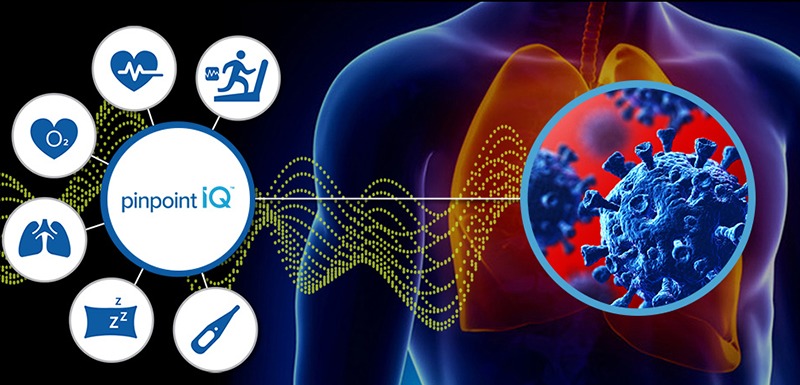PhysIQ, the Department of Defense, and The Henry M. Jackson Foundation for the Advancement of Military Medicine, Inc. (HJF), in conjunction with the Joint Program Executive Office for Chemical, Biological, Radiological and Nuclear Defense (JPEO-CBRND), announced the launch of an initiative to deploy physIQ’s platform to collect and analyze wearable sensor data to better understand the pathophysiology of COVID-19.
Read more Vuzix M400 Smart Glasses Continue Their Expansion Into Remote Care For COVID-19 Patients
The collaborative effort will use continuous monitoring with sophisticated personalized algorithms to evaluate physiologic signals to predict disease progression and early indication of infection, and potentially evaluate novel treatments for COVID-19. This objective corresponds with JPEO-CBRND’s mission to evaluate advanced technologies for disease outbreak preparedness, as well as to understand how patients’ physiological data can be monitored remotely using continuously streaming wearable sensor data and Artificial Intelligence (AI), reports Business Wire.
“We are fortunate to have previously worked with physIQ in our fight against Ebola and Sepsis in Africa and are striving to rapidly translate those novel tools and strategies for the COVID-19 pandemic,” said Dr. Danielle Clark, HJF’s Director of the Austere Environments Consortium for Enhanced Sepsis Outcomes (ACESO) program. “We plan to track thousands of patients and high-risk contacts, as well as front-line healthcare workers. It is critical that we have tools to differentiate those who should self-isolate at home from those who require hospitalization.”

The program will initially involve military hospitals across the United States, as well as international sites in Southeast Asia.
“As we find ourselves in these challenging times it is imperative to collaborate with the private sector in order to leverage every tool possible in this fight to understand COVID-19,” said Dr. Matt Hepburn, Joint Project Lead CBRN Defense Enabling Biotechnologies. “Teaming up with physIQ will give us clinical insights into this virus on a scale that has not been done before, while allowing us to monitor the progress of those with the disease in an outpatient setting 24×7.”
Read more Biofourmis’ AI-Powered Tech Being Used in Remote Monitoring of COVID-19 Patients in Hong Kong
physIQ CEO Gary Conkright said:
“Every day it is becoming more obvious that we need to deliver COVID-19 care in the home, as hospital capacity cannot keep up with the fallout of this devastating virus. Achieving this will require clinical and physiological insight traditionally not available in an outpatient environment or with periodic spot checks of vitals that appear to be lagging indicators with this virus. With wearable biosensors and advanced analytics, we can provide continuous, high-fidelity, multidimensional physiological insight required to understand and better treat this disease. We are honored to expand upon our breakthrough Ebola work with Dr. Clark to now address the most significant global crisis in our lifetime.”
PhysIQ technology is currently being utilized in observational studies on multiple protocols. The goal is to expand its use across additional protocols and clinical studies.












